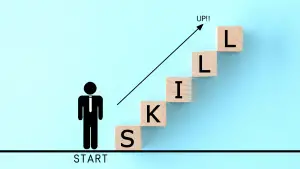In recent years, Nigeria has witnessed a series of protests under the umbrella of #EndBadGovernance. A movement that is driven by widespread dissatisfaction with the state of governance in the country. This year is no different, as protesters in large and small groups have taken to the streets to express their grievances on the state of the economy. Men, women, and even children are not left out in this protest. This article aims to talk about the origin, evolution, and recent demands of protesters and whether protesting is the right alternative at this time of uncertainty in the state of Nigeria.
What does #EndBadGovernance mean?
The #EndBadGovernance movement is deeply rooted in prolonged dissatisfaction with issues such as corruption of government officials, inadequate infrastructure, inflation, high unemployment rates, and police brutality. These issues are longstanding concerns that are still of major concern in this present day. The pivotal moment for this year’s protest, however, was the perceived incompetence of the government in addressing basic needs and the corruption of top government officials in power.
This movement gained traction through social media, particularly through X, formerly known as Twitter. This online mobilization of individuals and the creation of awareness later materialized into a series of protests. With a large number of Nigerians taking to major streets in cities across Lagos, Abuja, Kano, Ogun, and Kaduna. Despite the talks on anti-protests from security agents and top influential individuals and a demonstration against protests, Nigerians remain undeterred, as the protest enters the fourth day of the ten days planned protest.
One of the primary demands of the #EndBadGovernance protesters is addressing the high rate of unemployment, particularly among the youth. According to the National Bureau of Statistics, the labor force participation rate among the working-age population remained high at 80.4% in Q2 2023.
The employment-to-population ratio was 77.1% in Q2 2023.

The combined rate of unemployment and time-related underemployment as a share of the labor force population (LU2) was 15.5% in Q2 2023.
This high figure indicates that there is a dire need for employment among Nigerian youths.
Protesters demand that the removal subsidies placed on petrol and LPG be reversed. Recall that as part of the President’s economic reforms, subsidies of petroleum products were removed completely on May 29th, 2023. This raised a lot of concerns as it was done without any alternative in place.
This has led to an increase in the prices of petrol and LPG.
According to the president, some of the savings from this fuel subsidy removal will be diverted to economic-driving activities.
Protesters are calling for tough control of the nation’s resources to reduce corruption. “Nigeria has a score of 25 this year, with a change of 1 since last year, meaning it ranks 145 out of 180 countries,” says Transparency International’s 2023 Corruption Perceptions Index. It also highlights the key corruption issues. This ranking sheds light on the widespread and entrenched issue of corruption within the nation.
The mismanagement of public relief palliatives during the COVID-19 pandemic and the continuous embezzlement of public funds have further diminished trust in government institutions. These incidents have severely undermined the confidence of the Nigerian populace in their government institutions. Many citizens and activists advocate for establishing independent anti-corruption agencies to root out corrupt practices and hold perpetrators accountable. Alongside this, there are calls for the prosecution of individuals implicated in corrupt activities to send a strong message that such behavior will not be tolerated.
Reports from the #EndBadGovernance protest?
On the first day of the planned protest, Nigerians turned out in numbers at various meeting points of convergence. Although termed a peaceful protest, there were reports of violence from security agents. According to a report published in The Punch newspaper, no fewer than 17 persons were feared killed in Abuja, Kano, Niger, Borno, Kaduna, and Jigawa during the #EndBadGovernance protest which was held across the country on Thursday.
Another report from the above newspaper also stated, “A group of protesters converged on the Eagles Square, chanting the old ‘Arise, O Compatriots’ national anthem and demanding an end to bad governance in the country.
In response, the security operatives fired a couple of teargas canisters to discourage the protesters, who only shouted back in defiance.”
Another report by voanews stated, “Police in Nigeria say at least five people were killed when nationwide economic protests turned violent in some major cities Thursday, while the rights group Amnesty International says 13 protesters were killed by security personnel.”
As of the time of writing this article, the president of Nigeria, President Bola Ahmed Tinubu, in a televised speech, has called for an end to the protests. Nevertheless, a considerable aspect that garnered attention was the President’s apparent omission in addressing the legitimate demands set forth by the protesters. Despite the urgent need to acknowledge and engage with the grievances expressed by the populace, his speech seemed to overlook this critical aspect. Potentially causing further dissonance between the government and the protesting citizens, as some well-meaning Nigerians have vehemently and actively showed up at various protest grounds. We however hope that he has considered these demands and that he his actively working on them.
An excerpt from BBC News of the President’s speech reads: “My dear Nigerians, especially our youth, I have heard you loud and clear.”
He went ahead to defend some of his economic policies. He also did not indicate if some of these policies – which have led to an increase in hardship – will be reversed.
The #EndBadGovernance movement in Nigeria has brought attention to the country’s pressing issues, which include corruption, mismanagement and embezzlement of public funds, and poor leadership. It is also a joint and collective effort to express a common grievance among citizens. This #EndBadGovernance movement shows political participation among youths and the willingness to be involved in the affairs of the state at large. While significant challenges remain, Nigerians remain steadfast and are not willing to give up in this ten-day protest.
Curfews have been imposed in some parts of the country amidst the protests. Nigerians are urged to stay safe at this time.







